Filter News
Area of Research
News Type
News Topics
- (-) Buildings (24)
- (-) Exascale Computing (4)
- (-) Isotopes (13)
- 3-D Printing/Advanced Manufacturing (49)
- Advanced Reactors (18)
- Artificial Intelligence (21)
- Big Data (18)
- Bioenergy (21)
- Biology (24)
- Biomedical (15)
- Biotechnology (3)
- Chemical Sciences (21)
- Clean Water (13)
- Climate Change (28)
- Composites (13)
- Computer Science (55)
- Coronavirus (15)
- Critical Materials (13)
- Cybersecurity (9)
- Decarbonization (12)
- Energy Storage (47)
- Environment (58)
- Frontier (4)
- Fusion (17)
- Grid (23)
- High-Performance Computing (23)
- Hydropower (6)
- Irradiation (3)
- ITER (4)
- Machine Learning (12)
- Materials (68)
- Materials Science (53)
- Mathematics (1)
- Mercury (3)
- Microscopy (20)
- Molten Salt (6)
- Nanotechnology (24)
- National Security (10)
- Net Zero (2)
- Neutron Science (41)
- Nuclear Energy (34)
- Partnerships (6)
- Physics (10)
- Polymers (14)
- Quantum Computing (6)
- Quantum Science (14)
- Security (4)
- Simulation (11)
- Software (1)
- Space Exploration (11)
- Statistics (1)
- Summit (8)
- Sustainable Energy (53)
- Transformational Challenge Reactor (1)
- Transportation (46)
Media Contacts
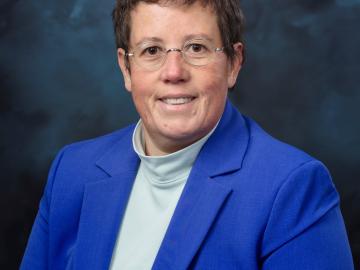
Lætitia H. Delmau, a distinguished researcher and radiochemist at Oak Ridge National Laboratory, has received the 2024 Glenn T. Seaborg Actinide Separations Award.

A technology developed by Oak Ridge National Laboratory works to keep food refrigerated with phase change materials, or PCMs, while reducing carbon emissions by 30%.
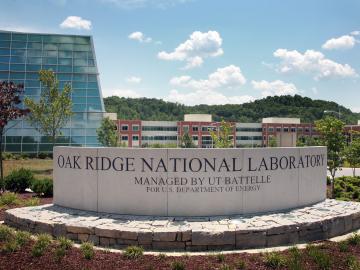
Two different teams that included Oak Ridge National Laboratory employees were honored Feb. 20 with Secretary’s Honor Achievement Awards from the Department of Energy. This is DOE's highest form of employee recognition.
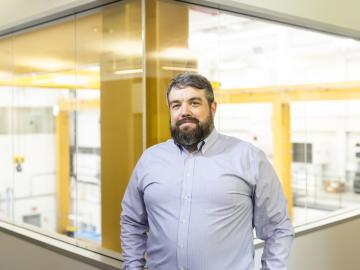
The American Society of Heating, Refrigeration and Air-Conditioning Engineers, or ASHRAE, selected Jason DeGraw, a researcher with ORNL, as one of 23 members elevated to Fellow during its 2024 winter conference.
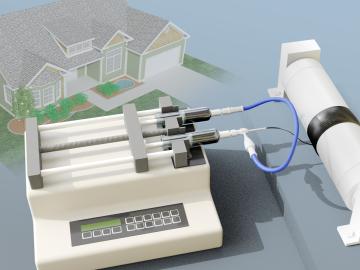
ORNL researchers have developed a novel way to encapsulate salt hydrate phase-change materials within polymer fibers through a coaxial pulling process. The discovery could lead to the widespread use of the low-carbon materials as a source of insulation for a building’s envelope.
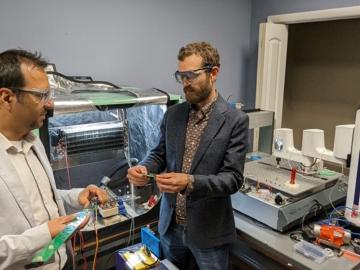
Four ORNL teams and one researcher were recognized for excellence in technology transfer and technology transfer innovation.
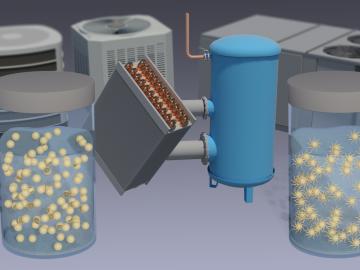
ORNL researchers demonstrated that an additive made from polymers and electrolytes improves the thermal performance and stability of salt hydrate phase change materials, or PCMs, a finding that could advance their integration into carbon-reducing heat pumps.
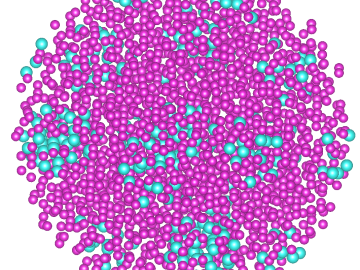
Researchers used the world’s first exascale supercomputer to run one of the largest simulations of an alloy ever and achieve near-quantum accuracy.
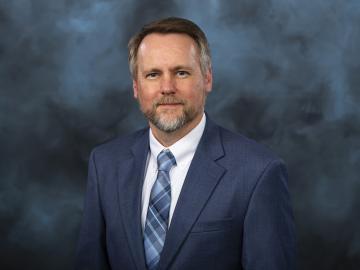
Michael McGuire’s recognition as the Oak Ridge National Laboratory's top scientist headlined the annual awards. ORNL Director Stephen Streiffer also presented Director’s Awards to two teams, for operational performance and continuous improvement, and to the night’s science communicator awardee
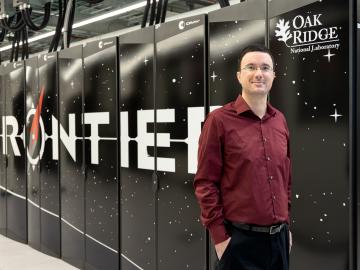
The Exascale Small Modular Reactor effort, or ExaSMR, is a software stack developed over seven years under the Department of Energy’s Exascale Computing Project to produce the highest-resolution simulations of nuclear reactor systems to date. Now, ExaSMR has been nominated for a 2023 Gordon Bell Prize by the Association for Computing Machinery and is one of six finalists for the annual award, which honors outstanding achievements in high-performance computing from a variety of scientific domains.




